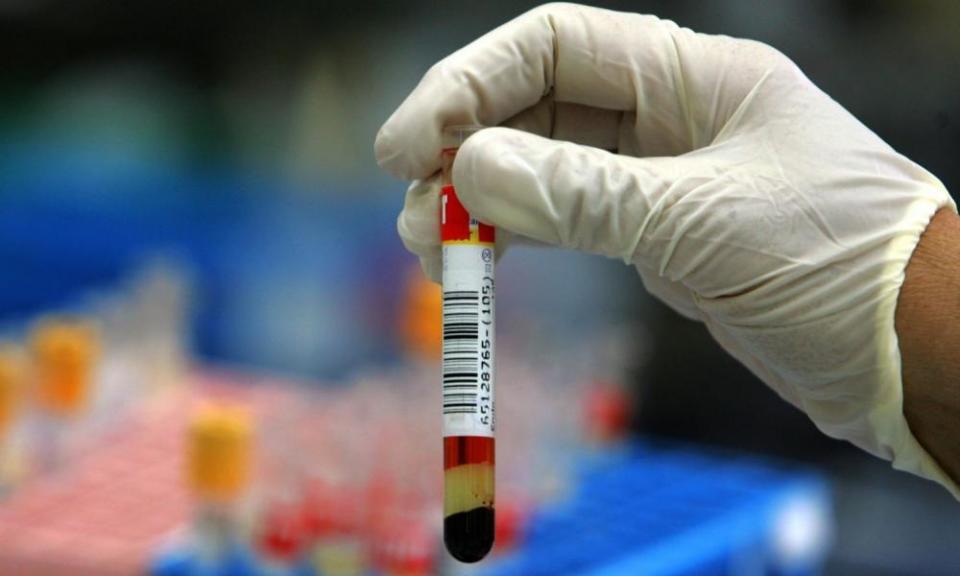Pathology giants seek 50% rent reduction from hard-pressed Australian GPs amid coronavirus crisis

Major pathology corporations are attempting to halve their rental payments to GP practices across the country in a move that threatens to financially cripple clinics at a time of critical need.
Many Australian GP clinics depend on rental payments from co-located pathology centres to remain viable, and the revenue source has become increasingly important during the coronavirus crisis, which has cut their patient numbers, upended their business model and left many on the brink of collapse.
But Guardian Australia and the Medical Republic, a specialist health publication, have learned that some of Australia’s biggest pathology companies have begun writing to GP clinics requesting they accept a 50% reduction in rent.
Related: Is hotel quarantine putting the health of vulnerable people at risk?
GPs say they feel pressured to accept or face an early termination of their lease. That pressure is compounded by a decision of the federal government to block new pathology services from opening to replace any that close down in the next six months.
The situation has left GPs facing an invidious choice: accept the 50% rent reduction or risk losing an existing tenant and the entirety of their rent for the next six months.
The Australian General Practitioners Alliance, the peak body for GP-owned clinics, says GPs depend on pathology rents to survive, particularly at a time of significant losses in revenue.
“In some cases, this may make the difference between general practices remaining open or closing,” said the alliance’s executive officer, Richard Hart.
Australia’s pathology sector – a highly concentrated market dominated by five big players – has suffered its own downturn, as GP visits drop and demand for testing falls in parallel. Both GP clinics and pathology services – which provide Covid-19 testing – form a crucial part of the response to the pandemic.
Letters from Laverty Pathology and Western Diagnostics Pathology, owned by the pathology giant Healius, have been sent to clinics across the country.
“It is our strong preference to keep as many approved collection centres open and trading as possible,” one letter said. “To facilitate this, we are requesting that you agree to an arrangement that provides us temporary rent relief.
“Accordingly, we are requesting a reduction of 50% of the current monthly rent under our sublease.
“This proposed rent relief would be for an initial three-month period from 1 April 2020 to 30 June 2020, which will continue on an ongoing monthly basis until the parties further review the arrangement at the end of the period.”
Healius confirmed that its pathology providers had been contacting landlords and requesting their assistance with rental costs during a period when they are seeing a significant decrease in pathology testing volumes.
“Most of these requests have been met with a willingness to assist and discussions have been, and are continuing to, take place to agree a mutually acceptable outcome,” a spokesperson said.
David Dahm, an accounting and taxation adviser to GPs based in Adelaide, estimates that pathology labs bring in about $15,000 to $25,000 every year for every full-time GP working in a clinic. The rent reduction, if accepted, could cost clinics $7,000 to $15,000 a year for each full-time GP.
With psychologists and other allied health workers working from home, GPs have already lost substantial rental payments. At the same time, GPs are dealing with dwindling numbers of face-to-face patients and technical problems with the rapid telehealth transition.
Dahm said GP clinics were gazing into a “funding black hole”. “GPs live off [the government’s practice incentives program] and pathology rent.”
He said pathology labs closing or cutting rent would rob GPs of “what fundamentally keeps the doors open – that safety net”.
“What I’m saying to people is, firstly, you don’t have to accept what the pathology labs say to you. Get some professional advice. There are other ways around this particular problem and don’t just knee-jerk and react.”
This threat of breaking the lease was fully articulated in one letter to a GP, which said the proposed rent relief “is the most viable way for us to keep our approved collection centres operating effectively without having to potentially close them pursuant to early termination rights in our sublease”.
Related: I’ve offered to go back working in ICU, but my best work is done in palliative care | Anne Myers
A federal Department of Health spokesperson confirmed it was pausing new pathology leases – making it all but impossible for GPs to find replacement tenants – as part of Australia’s response to Covid-19.
The moratorium on opening new pathology centres where an existing collection centre closes will operate between 27 March and 30 September 2020.
The department spokesperson said it was “important that pathology providers remain viable and continue to prioritise and increase their capacity to test for Covid-19”.
The prime minister, Scott Morrison, provided further support for this action on Wednesday when he announced that landlords would have to reduce rent for commercial businesses proportional to their loss in revenue.

 Yahoo News
Yahoo News 